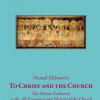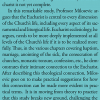James Scully is the author of 10 books of poetry, including Donatello’s Version (Curbstone Press/Northwestern University Press, 2007), four book-length translations, the seminal essay collection Line Break: Poetry as Social Practice (Curbstone Press/ Northwestern University Press, 1988/2005), and Vagabond Flags: Serbia & Kosovo: Journal, Scrapbook & Notes (Azul Editions, 2009). The founding editor of Art on the Line series (Curbstone Press, 1981-1986), he has been a key figure in the movement to radicalize the theory and practice of American poetry—in how it is lived as well as in how it is written.
Born in 1937 in New Haven, CT, Scully lives in Vermont with his wife, Arlene. They’ve been married since 1960 and have a son, John, and a daughter, Deirdre. His awards include a National Defense Fellowship 1959-1962; an Ingram Merrill Foundation Fellowship (Rome, Italy 1962-63); the Lamont Poetry Award 1967 for The Marches; the Jenny Taine Memorial Award 1971 for translation; a Guggenheim Fellowship (Santiago, Chile 1973-74); National Endowment for the Arts Fellowships 1976-77 and 1990; the Islands & Continents Translation Award 1980; and the Bookbuilders of Boston Award 1983 for book cover design.
.VAGABOND FLAGS was translated into Serbian and published in Belgrade in September, 2008. Scully characterizes it as "an accidental book that started out as a journal for a few friends who were curious about that part of the world. From there it evolved, with the addition of Balkans historical information, into a scrapbook of relevant documentary materials pertaining to the NATO war on the former Yugoslavia. It was then translated and published at the initiative of the Writers Association of Serbia."
Source: The Complete Plays of Sophocles






